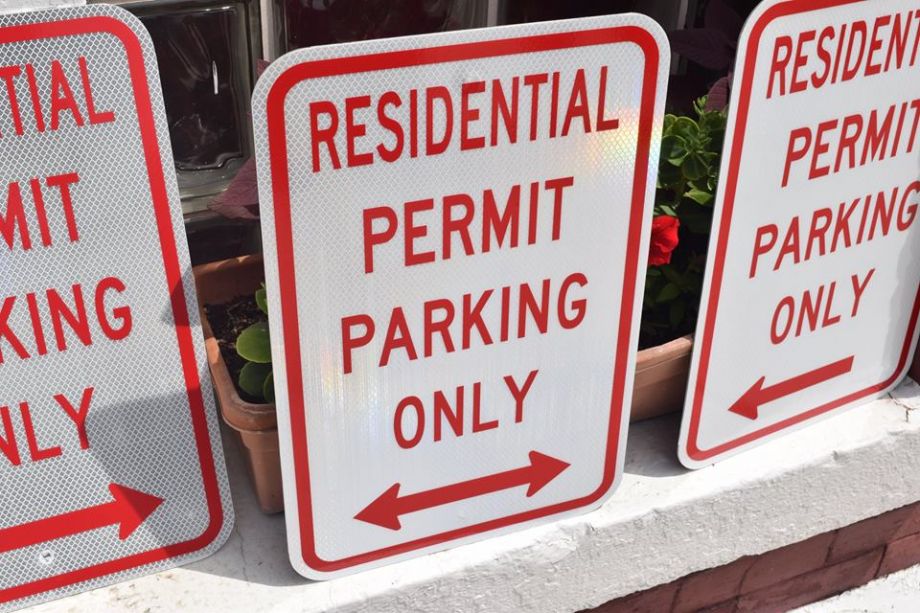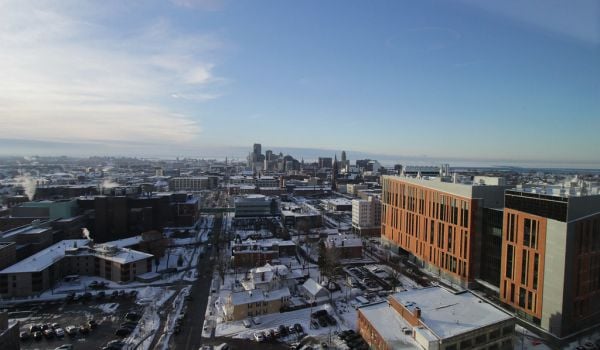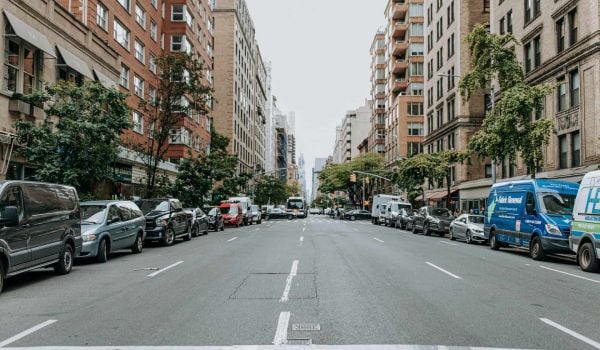One night this past May, India B. Walton bought herself a roll of caution tape, came home and sat down to have a conversation with her four children.
“I told my children that it was possible that I’d be going to jail,” says Walton, recalling how she prepared her 19-year old to take care of her fourteen-year-old twins and a six-year-old.
The next morning, the registered nurse and native Buffalonian got up early, found a street nearby with open parking spots, barricaded it with caution tape and made her stand. She staged a one-woman protest against the overcrowded street parking situation in the Fruit Belt, a historic and primarily black neighborhood on the east side of Buffalo that has been dealing with a mounting set of issues, such as parking, related to the growth of the Buffalo Niagara Medical Campus.
Walton wasn’t entirely alone in spirit. She is a member of the Community First Alliance, which includes Fruit Belt residents and neighborhood-based organizations that have been organizing for years to make sure current and long-standing residents have a voice in development tied to the medical campus expansion. Joining them in the alliance are citywide and regionwide organizations such as the Buffalo Federation of Neighborhood Centers, Open Buffalo, PUSH Buffalo, the Coalition for Economic Justice and the Partnership for Public Good.
On the parking issue, which requires state legislation, there had been stalemates in past years, but earlier this year the alliance helped negotiate a breakthrough deal to reserve half the street parking in the Fruit Belt for residents, using permits. It would be especially crucial for seniors, whom Walton says have often found themselves carrying groceries home from two or three blocks away because new medical campus employees have been taking up street parking in front of their homes.
“I think being a registered nurse kind of makes me naturally inclined to advocate for people who can’t do it for themselves,” Walton says. “I have not met a nurse yet who does not have a strong personality and we can sometimes be a bit overbearing.”
The alliance heard through the grapevine that there might be a different deal struck at the last minute before the end of the state legislative session, which would be less favorable to residents, helping to spark Walton’s demonstration.
“I was out there maybe an hour,” she says. “There were people who actually tried to turn down the street and had to turn around and were a little bit upset they weren’t able to park where they normally did. I was confronted two or three times by employees at the medical campus.”
News crews, whom Walton tipped off the night before, arrived shortly before the police. Walton wrapped up her protest in peace, having made her point.
“Later that evening we actually got a call from Darius Pridgen, who represents that area and is also the council president, to come in and sit down and try and hash things out with the unions [representing the hospital workers, some of whom can’t afford more expensive parking options in the area] and the legislators to make sure that our bill did in fact pass the senate,” says Walton.
The bill passed the NY state senate, and permit parking will soon be in place for residents of the Fruit Belt. With momentum from that victory, the alliance is setting its sights on its next goal: Convincing the city to turn over the 250 or so vacant, city-owned lots to community control, under a proposed community land trust that supporters think will ensure development without displacement in the Fruit Belt.
At the moment, in response to possible real estate speculation and displacement of existing residents, the city has put a moratorium on sales of city-owned lots in the Fruit Belt. Residents want the moratorium lifted, but under the condition that the city turn over the lots it owns to a community land trust. “Once the moratorium is lifted on these lots, and they increase the property tax assessments on these homes, some people aren’t aware of this, when your assessment goes up your property taxes also go up, which may force some residents out,” said Annette Lott, president of Fruit Belt United, in a video interview with the Partnership for Public Good, a research and advocacy group that works in the Buffalo-Niagara region.
A community land trust would give the community negotiating power to work with developers and ensure existing residents will have options to stay in the community. “If we control the process of who purchases those lots, we will be able to control rents, we will have development without displacement of our residents. That’s what’s key,” added Lott, who has lived in the Fruit Belt for more than six decades. “We want development, we want businesses, we need businesses in our community, but we don’t want to do it at the expense of dismantling what has been a viable, community spirit that we have built for many many years.”
With its array of members, the Community First Alliance has a broad set of tools and experiences at its disposal to help launch and manage a community land trust, such as PUSH Buffalo’s Green Development Zone, a multi-faceted array of property management and development initiatives focused on the west side of Buffalo.
“We have partners who are experienced in the administration of a land trust, we have experienced grant writers, a legal team,” Walton says. “We have everything we need right at the Community First Alliance table.”
A community land trust would also give the alliance more negotiating power for one of its ultimate long-term goals: establishing a community benefits agreement with the Buffalo Niagara Medical Campus itself.
One victory at a time.
The Equity Factor is made possible with the support of the Surdna Foundation.

Oscar is Next City's senior economic justice correspondent. He previously served as Next City’s editor from 2018-2019, and was a Next City Equitable Cities Fellow from 2015-2016. Since 2011, Oscar has covered community development finance, community banking, impact investing, economic development, housing and more for media outlets such as Shelterforce, B Magazine, Impact Alpha and Fast Company.
Follow Oscar .(JavaScript must be enabled to view this email address)

















